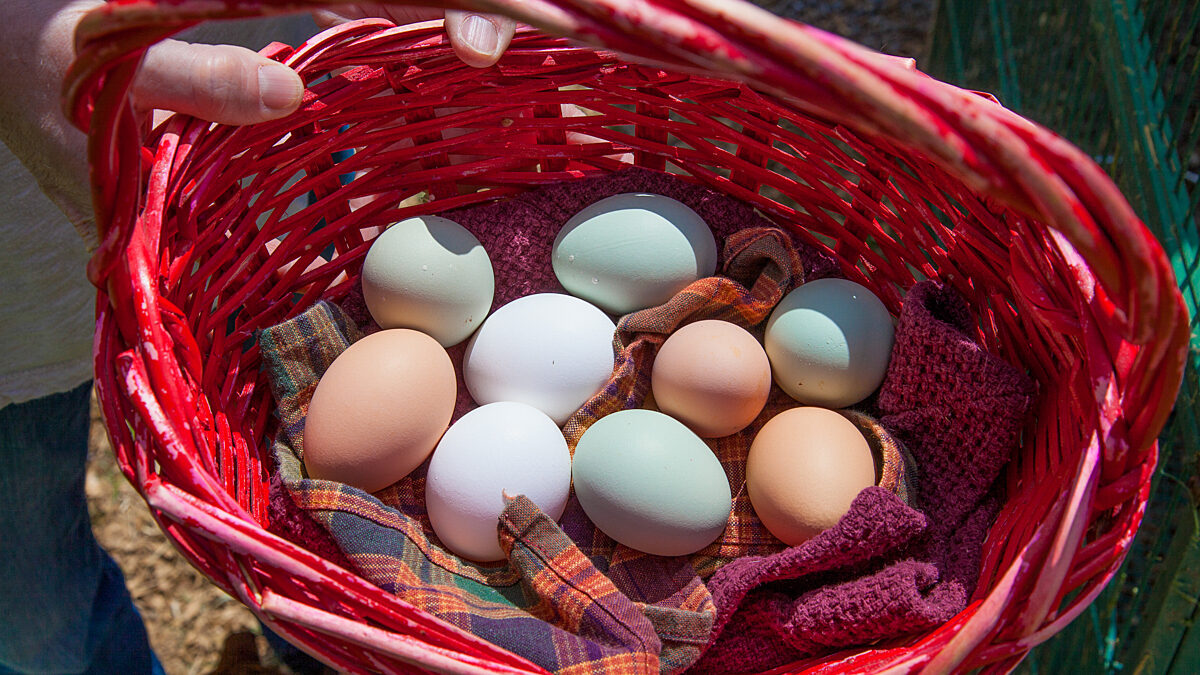Egg Producers Enhance Focus on Consumers During Pandemic
TOPICS
eggsGuest Author
Special Contributor to FB.org

photo credit: North Carolina Farm Bureau, Used with Permission
Guest Author
Special Contributor to FB.org
By Chad Gregory
The COVID-19 pandemic had devastating and global impacts in 2020, but the tremendous resiliency of the U.S. agriculture community – and the significance of the essential role we play in feeding Americans – has never been more apparent.
United Egg Producers went to work early in the pandemic to support the nation’s egg farmers, forging ahead to get things done and to protect the businesses and livelihoods of our industry and to keep safe, nutritious eggs available for Americans. For egg producers, that meant maintaining stability and business continuity in our own operations, while also keeping grocery stores and consumers’ refrigerators stocked in the early months of the pandemic.
Eggs, as a nutrient-dense food, can contribute to the health and well-being of Americans of all ages.
Our ability to adapt has been critical in addressing the hunger and food insecurity issues that have escalated this year. Egg farmers also knew they had a responsibility to help those in need and provided a steady supply of donations to support the frontline workers at foodbanks and hunger relief organizations across the United States.
Supply chain shift
Of particular importance was the ability of the egg farming community to swiftly make significant changes within its supply chain and increase flexibility within our businesses as consumers shopped more at grocery stores, and restaurants and other businesses across the U.S. closed.
When retail store shelves in some markets were low on eggs and panic purchasing took hold, UEP’s relationships with USDA and the Food and Drug Administration were leveraged to help egg producers redirect supply from foodservice into retail to meet increased consumer demand. This meant identifying ways to transition eggs normally produced and packaged for foodservice outlets like restaurants, schools and catering companies, along with the reworking of our distribution networks and sourcing additional retail cartons. Egg products like bulk liquid egg and pre-cooked whole hard-boiled eggs that would normally go to these customers were swiftly transitioned to meet FDA and USDA’s stringent retail requirements.
We assembled a team of experts to help egg producers navigate this crisis and protect their businesses. As a result, the industry was able to quickly meet the needs of consumers and redirect supply from customer sectors that were shut down, while also maintaining the highest standards for animal welfare, environmental responsibility and egg safety and quality.
Looking Ahead
The egg industry’s positive momentum continued in December 2020 with the release of the 2020-2025 Dietary Guidelines for Americans, which include recommendations for birth to 24 months old and specifically recommends eggs as an important first food for infants and toddlers, as well as for pregnant women and lactating moms. The guidelines also reinforce that eggs, as a nutrient-dense food, can contribute to the health and well-being of Americans of all ages.
Even in the shadow of the public health crisis, egg producers remain firmly focused on shaping the industry’s future, which will further strengthen consumer trust, reduce risk, provide market stability and grow demand for U.S.-produced eggs.
As we embark on 2021, UEP is focused on supporting our producers and continuing to position egg farmers for future success, while keeping egg safety, environmental responsibility and hen welfare top of mind as we engage with our customers.
Chad Gregory is president and CEO of United Egg Producers, a cooperative of U.S egg farmers who represent more than 90% of U.S. egg production.
Top Issues
VIEW ALL